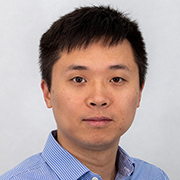A .gov website belongs to an official government organization in the United States.
A lock () or https:// means you've safely connected to the .gov website. Share sensitive information only on official, secure websites.

Climate change and air pollution are arguably two most pressing environmental issues facing the world today. This talk give an overview of studies relating the two at the decadal to multi-decadal time scale. The first part focusing on interactions will review recent work of how global warming affects aerosol distribution (Banks et al., 2021; Fiore et al., 2022), and in turn, how aerosols affect mean and extreme precipitation (Xu et al., 2022) and circulation changes (Diao and Xu, 2022), which could consequently impact air pollution itself (Wang et al., 2021), completing an intrinsic feedback loop. The second part will address the joint occurrence of heat extremes and air pollution, including haze (Xu et al., 2020) and ozone (Xiao et al., 2022), concerning their broader impact on human health and crop yield. Some concluding thoughts is given on how to mitigate the near-term warming rates by achieving co-benefits of air quality improvement while avoiding the shock of aerosol unmasking (Dreyfus et al., 2022).
Dr. Yangyang Xu received his Ph.D. in Earth Sciences from the Scripps Institution of Oceanography, University of California, San Diego in 2014. Dr. Xu joined the Department of Atmospheric Sciences at Texas A&M University as an Assistant Professor in 2016 and was promoted to Associate professor in 2022. Dr. Xu's research focuses on climate modeling with a specialization in climate change attribution, impact, adaptation, and mitigation. Dr. Xu is the recipient of the American Geophysical Union's 2019 Global and Environment Change Early Career Award for "outstanding contributions in research, educational, or societal impacts in the area of global environmental change".
ALL Seminar attendees agree not to cite, quote, copy, or distribute material presented without the explicit written consent of the seminar presenter. Any opinions expressed in this seminar are those of the speaker alone and do not necessarily reflect the opinions of NOAA or CSL.